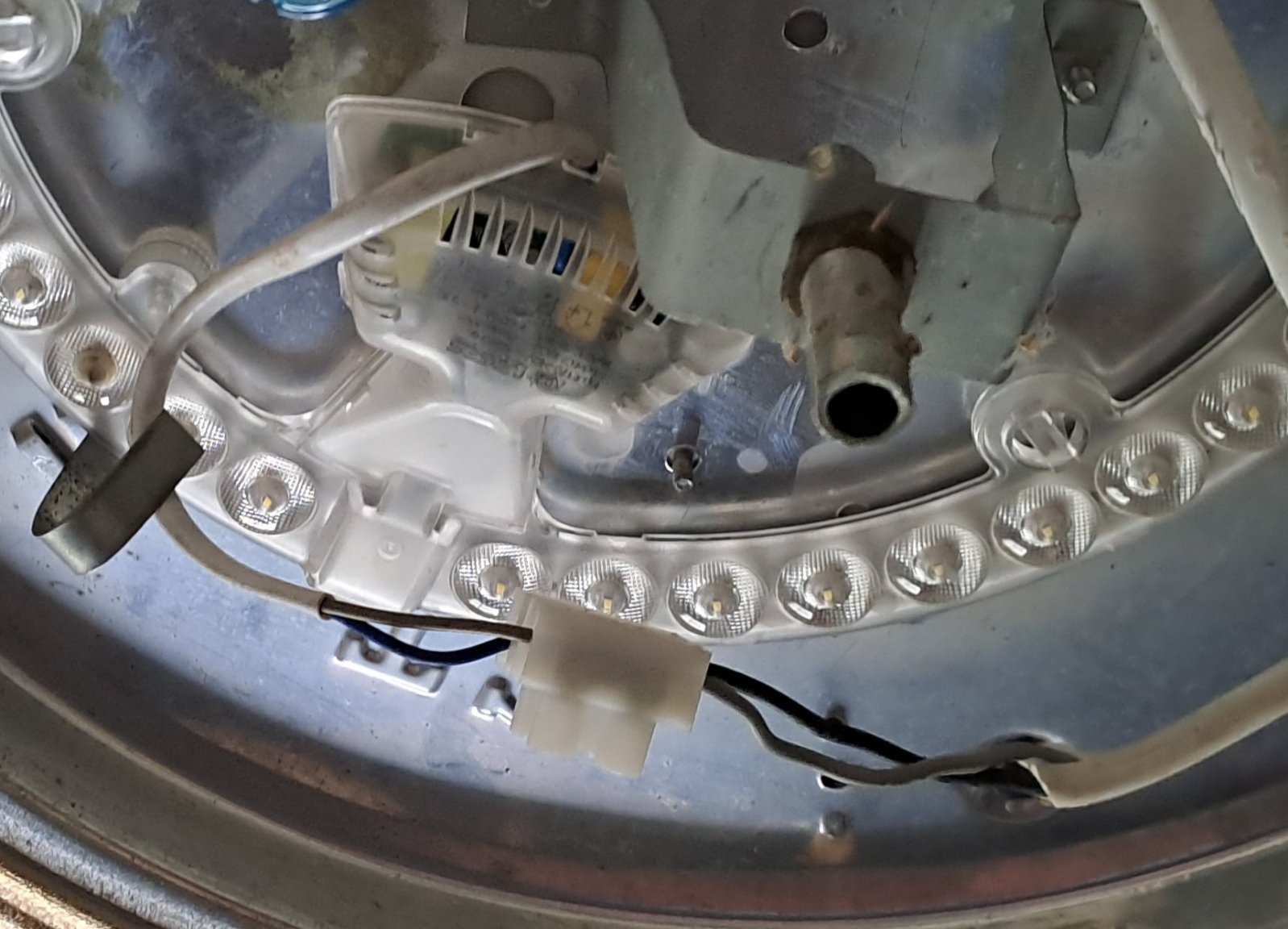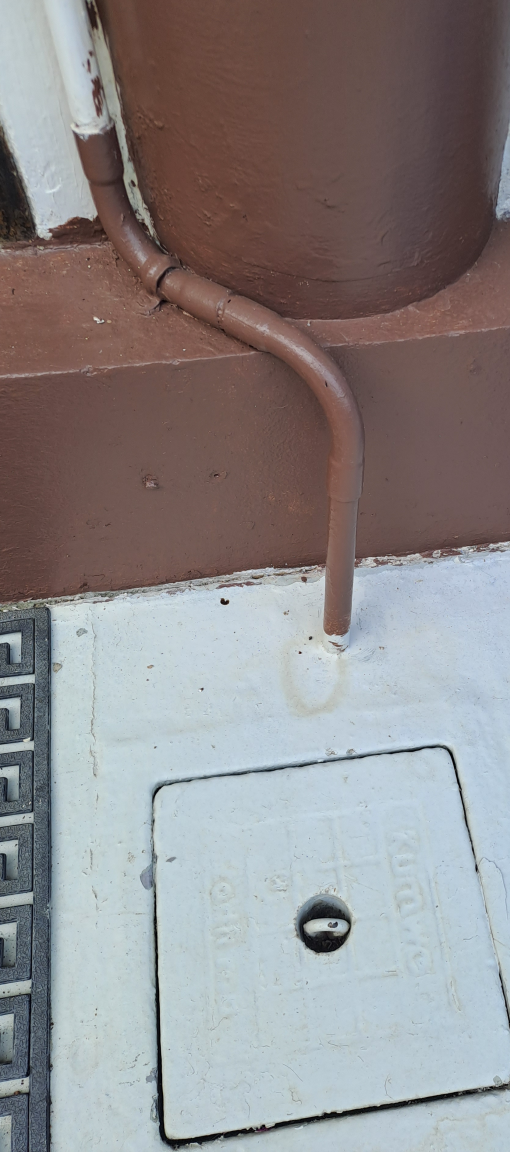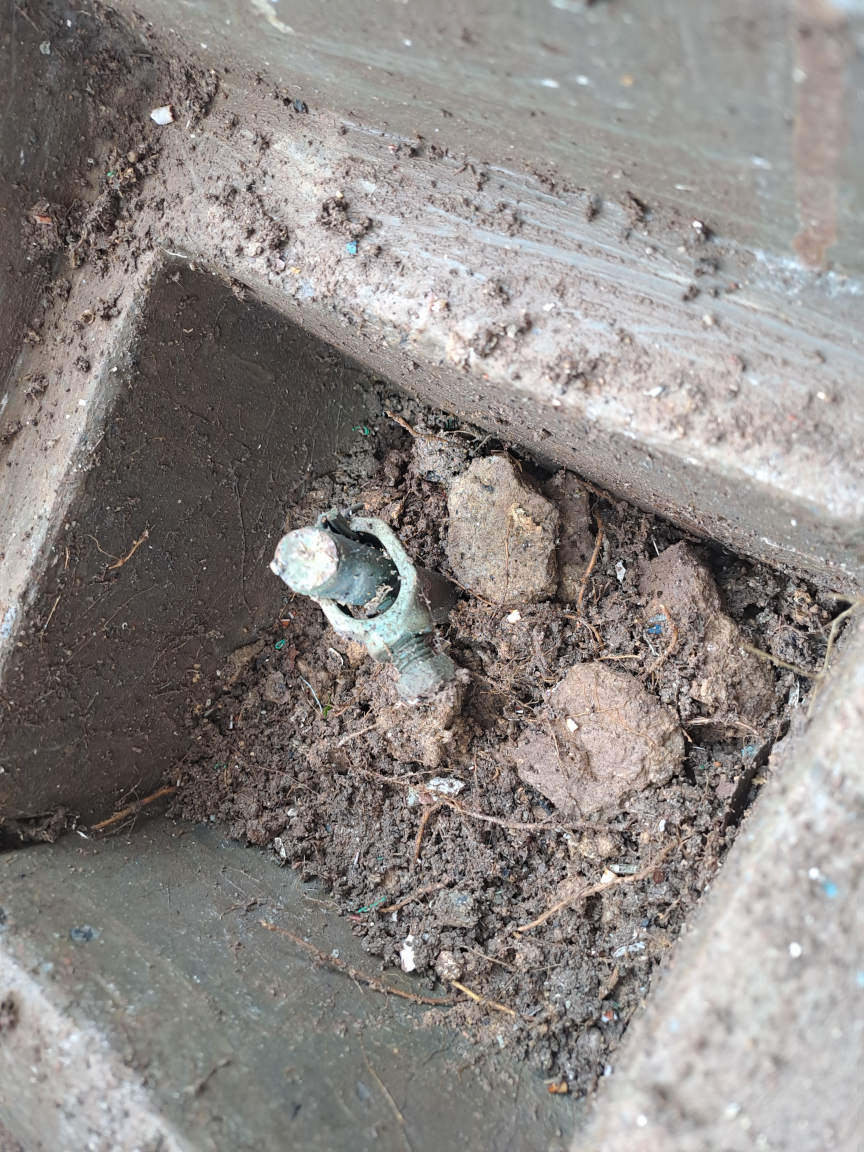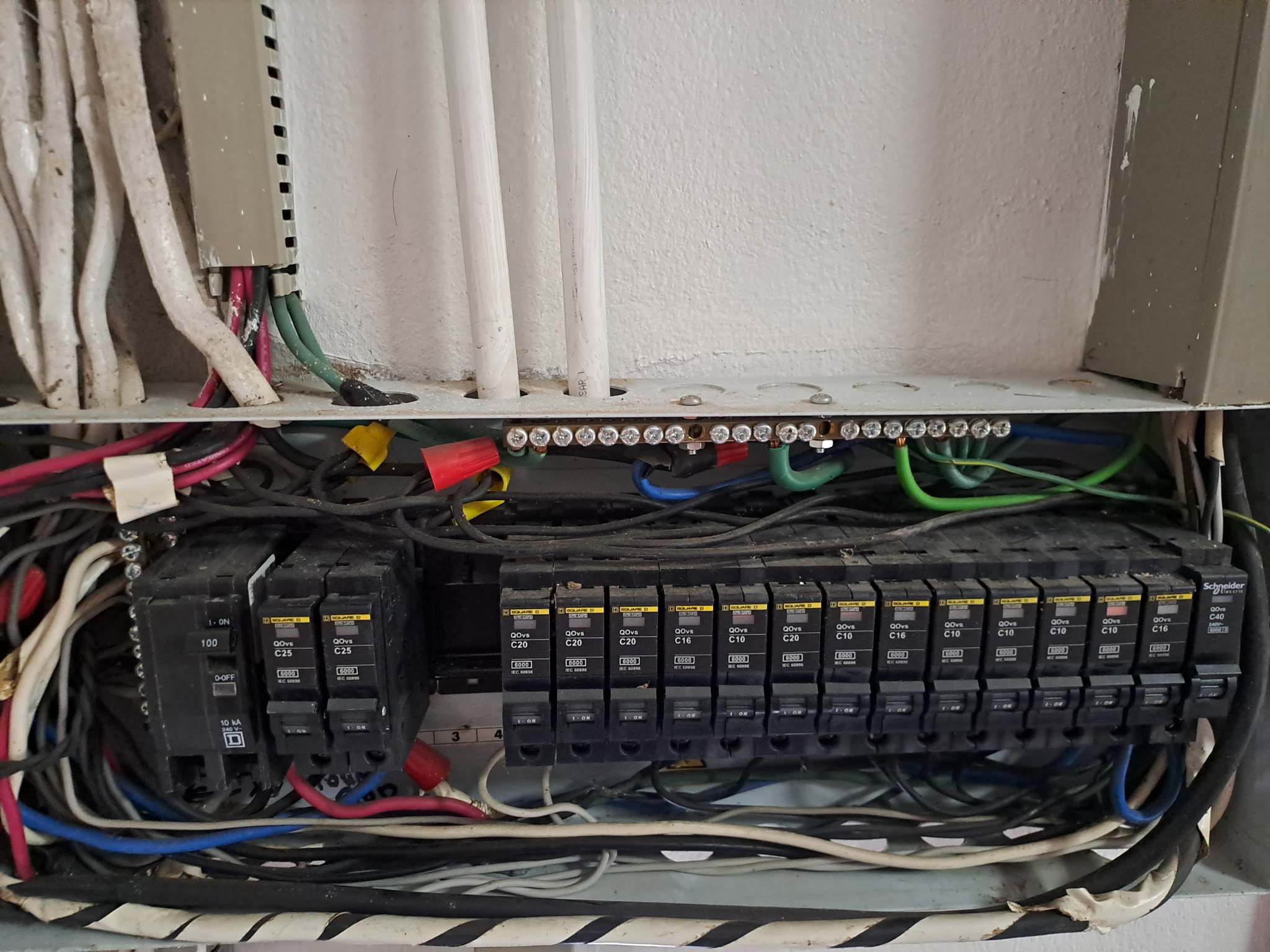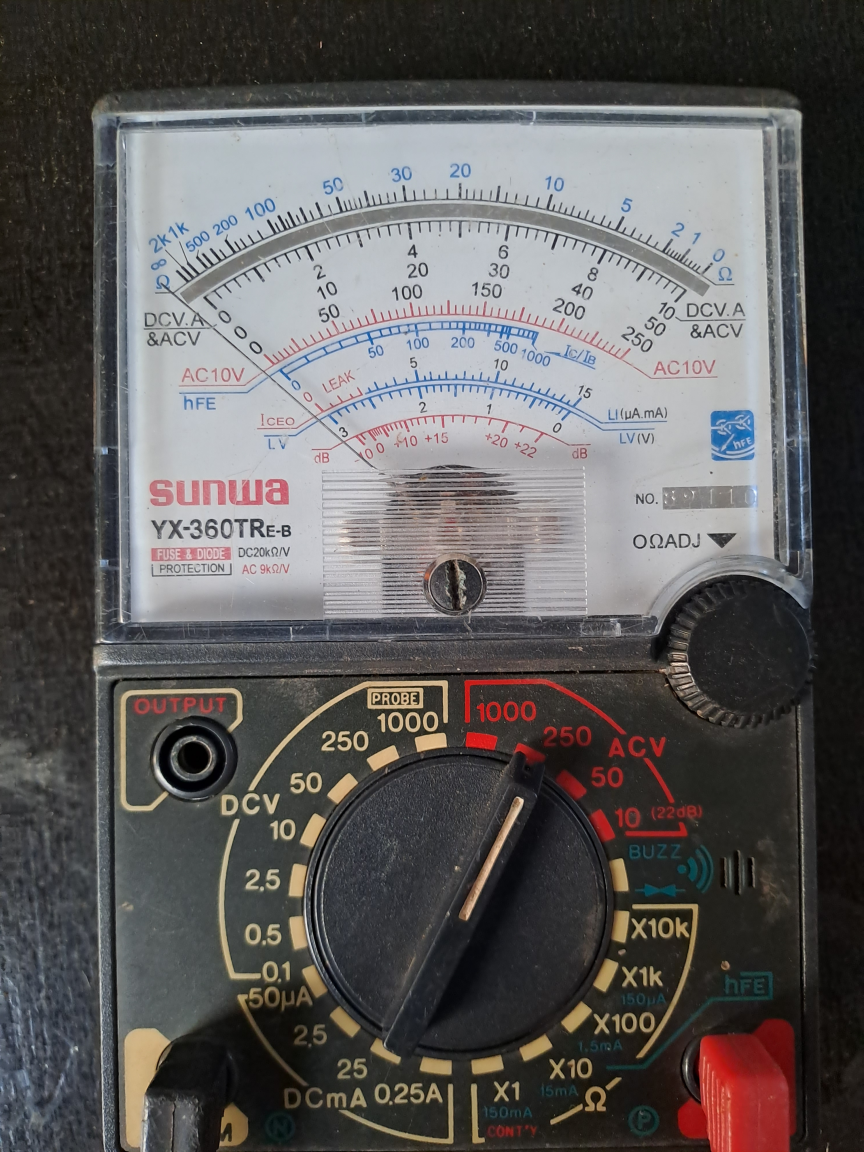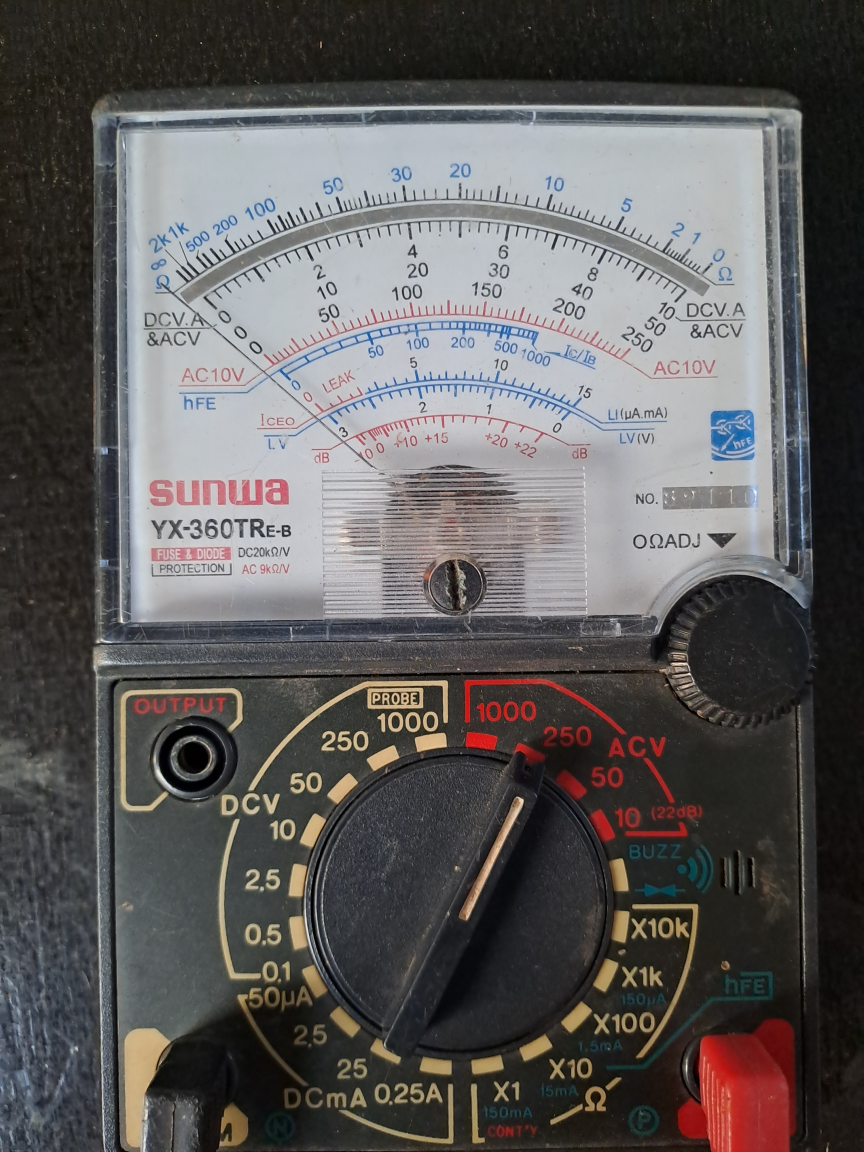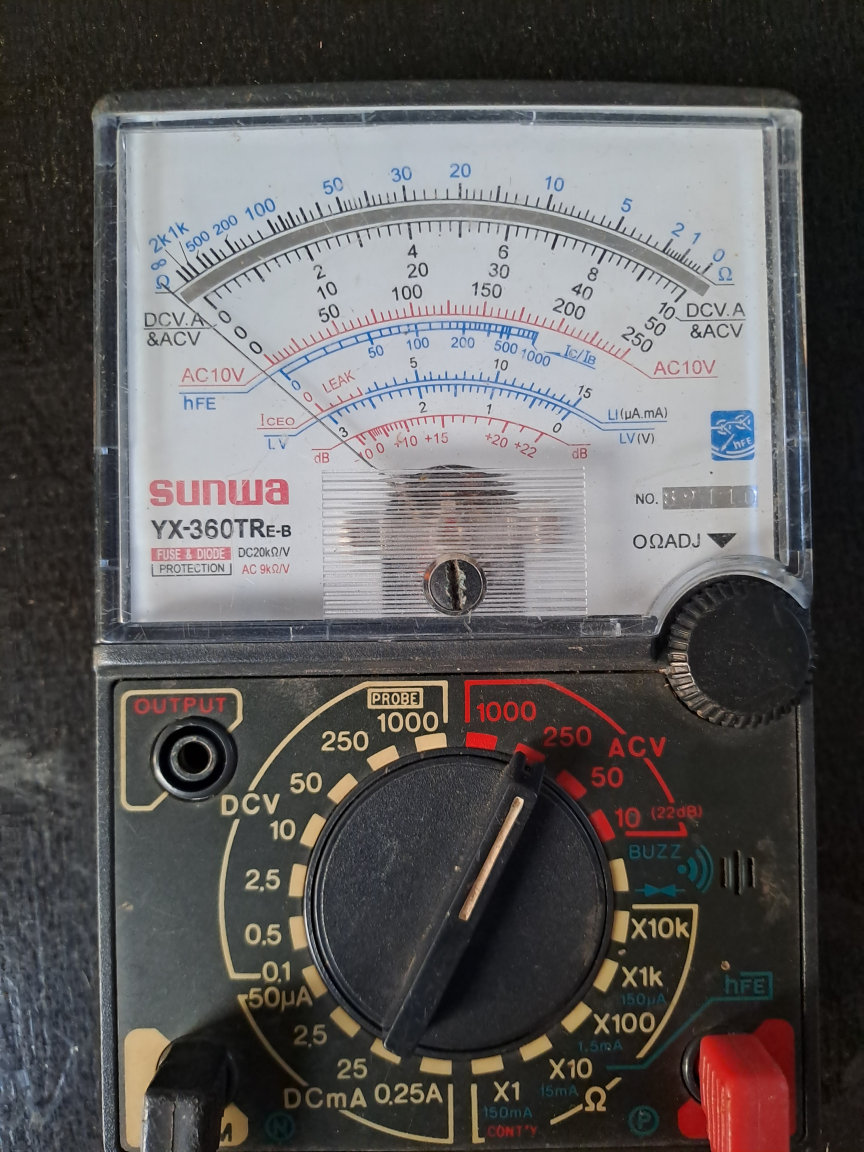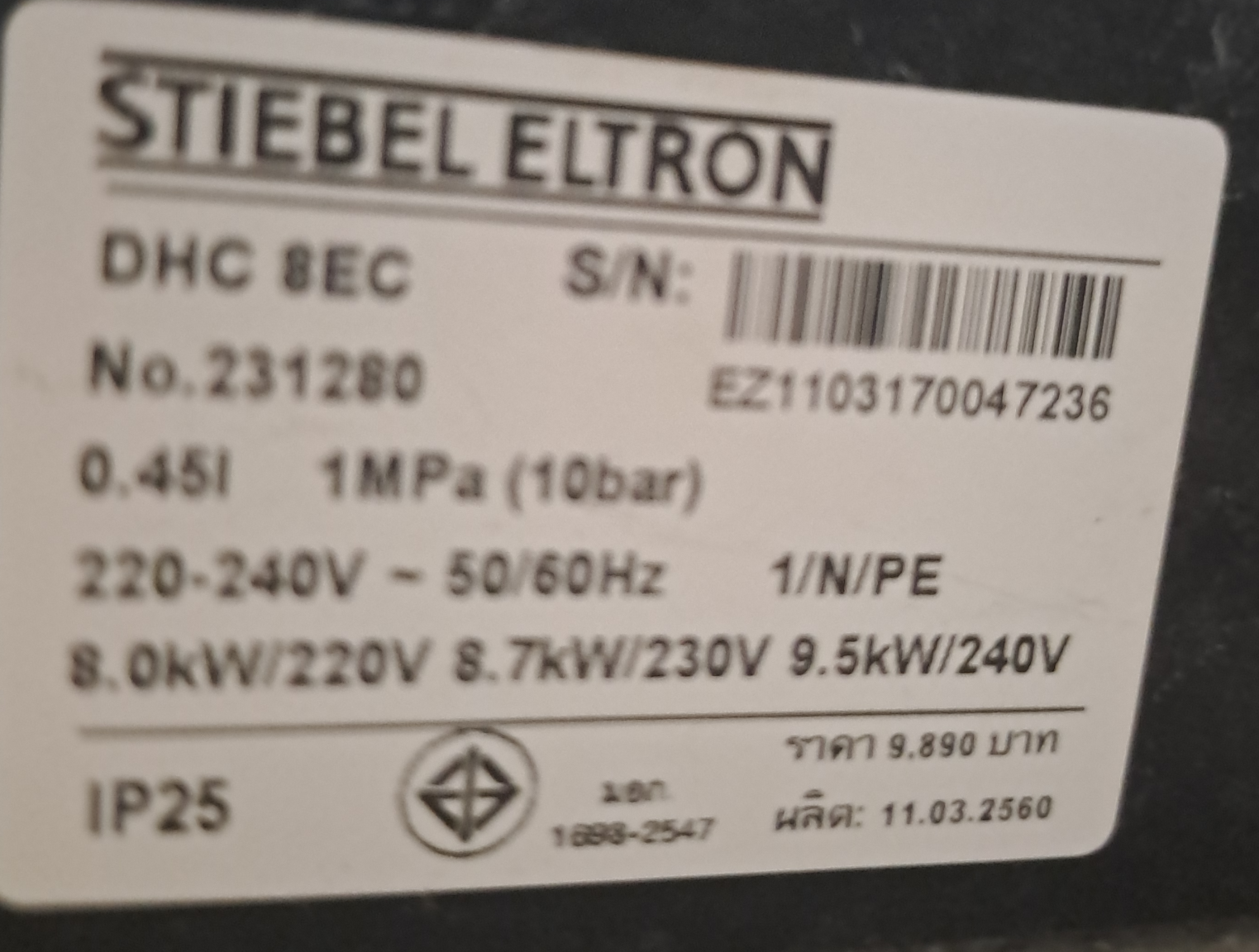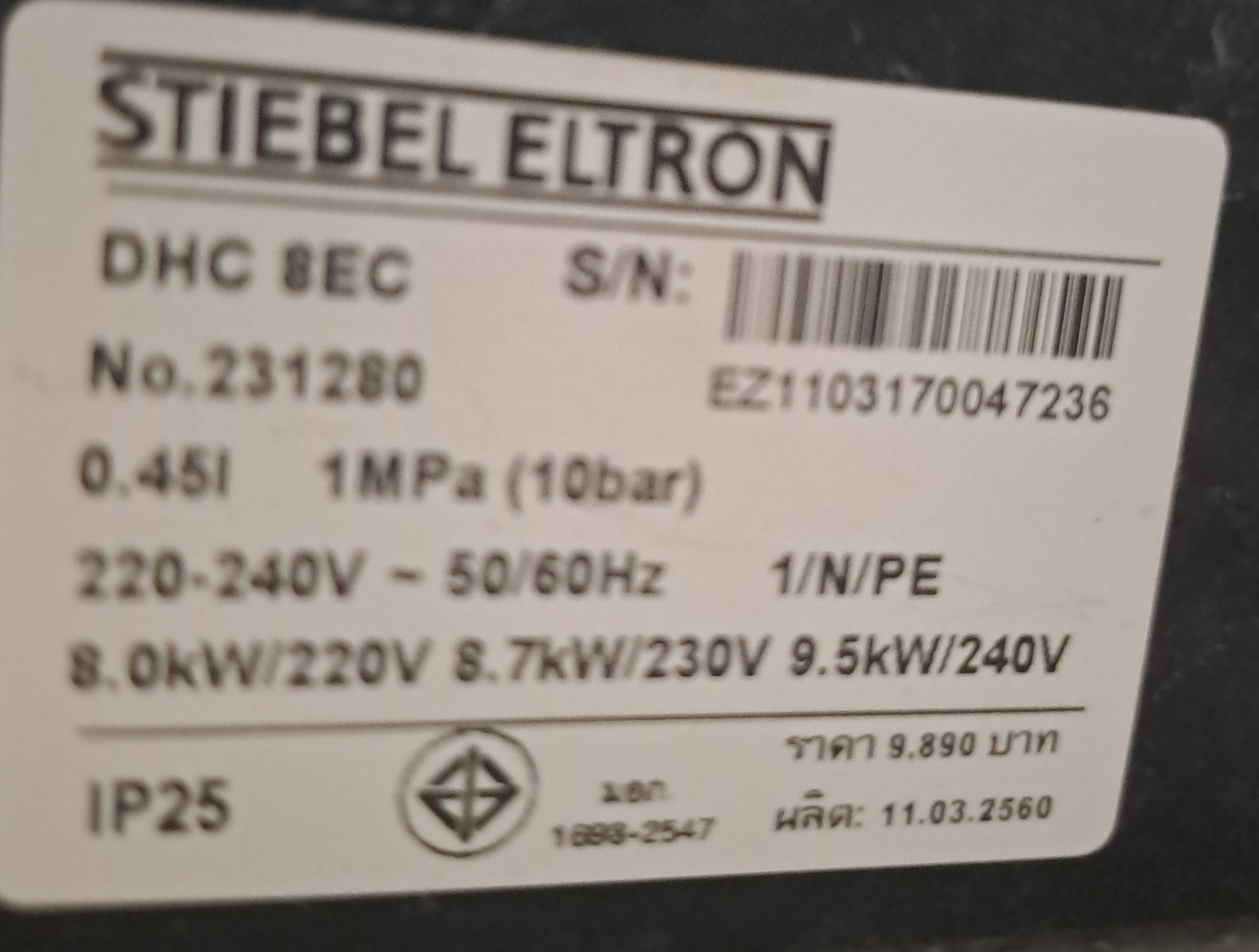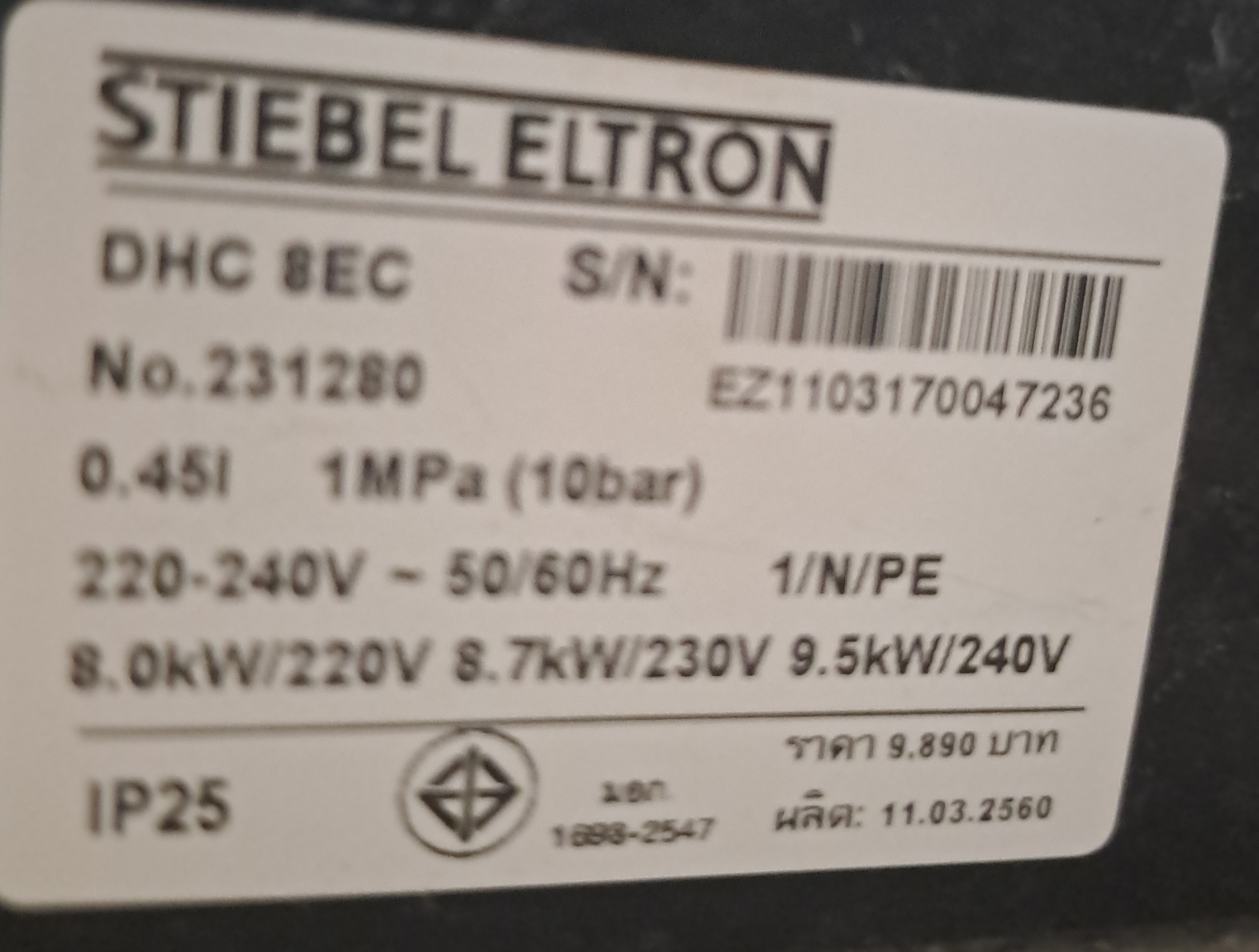-
Posts
44,404 -
Joined
-
Last visited
-
Days Won
9
Content Type
Events
Forums
Downloads
Quizzes
Gallery
Blogs
Everything posted by Sheryl
-
This may have been what local "electrician" used on the water heater and read at 28 amps. He used something he could clamp onto the heating element. His issue was that he insisted it should not have been more than 9 amps. (Specs say 36 amps). Apparently he based this on labelling for about 9 kW i.e. he did not understand the difference between A and kW.
-
-
Update: 1. I completely shut off the water heater and took shower without it, and found that running water at all, even without the heater, also caused the lightb to flicker just not as rapidly. Definitely no way the water pump, located on ground floor outside the house, shares a neutral wire with the hot water heater. So the flickering was related to dip in power supply and presumably otherwise unrelated to the water heater which - contrary to the claim of local "electricians" - does not draw more power than it is supposed to, per the specs. 2. Switched the bulbs to one that was working fine elsewhere. Presto - no more flickering!! So despite being brand new, a faulty bulb. I don't think an issue with installation as handyman re-installed it several times with no change, and also same handyman installed the other bulb. (And multiple bulbs throughout the house, none of which flicker). As mentioned I have very bad experience with these new LED bulbs that contain multiple round bulbs, they seem to burn out at a very rapid rate. I have no idea why, did not happen with the old kind at all and nothing new in my wiring that I know of. For more than a year these multi-bulb things were the only things locally available. Just recently these have now appeared in Home Pro: https://www.homepro.co.th/p/1055118?lang=en Does anyone have any experience with these -- or other brands they can recommend?? As for the glow problem, I will verify if the switches are on the live wires or not. This will take time as lots of switches/lights, it's a big house. From what has been said I assume that if that is ruled out then the glow is likely due to an issue is likely with grounding? The house was completely ungrounded when initially wired (of course). I subsequently had an electrician in from Bangkok (very, very hard to arrange) who put in a large ground metal rod into the ground at the back of the house which connects to a large green wire running down from what I think is called the the main circuit board or distribution board: I can't begin to sort out what is going on within the circuit board/box other than that there are 2 fairly large green wires coming down from the ceiling area where all the wiring is into screws at the top, and then a number of green wires coming off other screws and eventually one fairly large green wires snakes its way around and comes out and goes down to the ground. It is quite crowded inside the box and I am nto about to start touching and moving wires within it. In short there is a large ground wire that leads from the circuit/distribution box to a metal pole going deep into the ground but I have no idea what if anything it actually accomplishes, and I also don't know where the ground wires that run from the 2 hot water heaters up in the ceiling go or if they connect to the green wiring coming back down (presumably should). Installation of this ground did not change the light afterglows. Is there some easy way to check the effectiveness of the grounding?
-
Sorry, I have no idea what you mean....?
-
Glad it is not only me. Am I right to think the line above the voltage line (the one that runs 0 - 50) is amps?
-
OK, several folks now have said the problem maybe that the switch is wired with neutral instead of live. How should that be tested for? Touch the voltmeter to the wire the switch is on? If it is neutral would that then show no juice or low juice??
-
No not that.Small black knob above and to the right of the main settings. It says above it O followed by a symbol then ADJ. Someone else said it is for calibrating/xeroing the meter.
-
Thank you. I will try the bulb switch tomorrow as a first step... Don't know why I didn't think of it!! Stay tuned and I'll post the results tomorrow. I too thought the afterglow must mean electrical leakage since even turning off the circuits doesn't stop it. But I am not clear what you mean by a "junction box"? Is it the same as the fuse box? If so, what would cause leakage there/ how to confirm it/ what can be done about it?
-
Sorry I don't follow. I do have fluorescent lights and specifically one of them flickers wildly when I take a shower. Started only after bulb replaced (tho prior bulb burned out quicker than it should have). The glowing bit was mentioned only as background in case relevant and is not the immediate problem.
-
Ok thanks. This is not the immediate ptoblem, I only mentioned it as background in case relevant. Probably shouldn't have as it seems to have distracted people. You may well be right about it's cause though, makes sense .
-
How could I check this? Handyman did mention something about the switch feeling hot..... But when switch is on how why would this matter? Or were you referring to the afterglow rather than the flickering while turned on?
-
Interesting. Could this be due to something wrong in the light fixture due somehow to how the new light bulb was installed? (As problem only started then). Or does it have to be from a problem in the water heater itself? (Which seems to work fine). I ask because have to decide whether to invest in having Stiebel send out technician from Bangkok (very costly as 6 hour r/t drive -- I'll certainly do it if indicated but hate to waste my money and their time if the issue is in the light fixture. ).
-
As mentioned the manufacturer specs state 8 - 36 amps. It is installed only in 1 bathroom. I know it is more power than would need for shower only but I like to take baths. Anyway chouce of water heater is not the issue. I've had it for 7 years and it suits my needs and still works fine. Issue is in nearby (but on separate circuit) light fixture and started only after new bulb change.
-
It would cost me quite a lot to have them vome out since I live ipcountry and they would have to vome from Bangkok. I would certainly still do it if I thought the hot water heater was the problem but I really doubt it because: - installed by Stiebel not l8cals -working fine, no issues with its function. Problem is solely in nearby light fixture and there, only after new bulb installed.
-
I quite like DR.SONGKLOT AEUMJATURAPAT an ENT who can be seen at St Louis Hosp on Sathorn Sundays 8:30 AM - 12:00 and Thursdays 4:30 - 7 PM https://www.saintlouis.or.th/en/FindDoctor
-
There is, but it (PDA) has requirements you say you do nto meet. For that matter many of not all doctors at the above places, will have requirements. You might consider Marie Stopes Int clinics in Cambodia https://www.mariestopes.org.kh/services/contraception-and-family-planning/vasectomy/
-

Is methenamine (Hiprex) available in Thailand
Sheryl replied to simon43's topic in Health and Medicine
I don't really understand what you mean by "just perform a UTI check" ? Any hospital can do a culture and sensitivity if a doctor on staff there orders it. Many stand alone labs can also do this. Including this one in Vientiane: https://ncle.gov.la/en/contact -
I gather this was AIA Thailand? If you believe the denial is contrary to terms of the policy, make a complaint with the OIC 0-2515-3999 Call Center 1186 [email protected] [email protected]
-
Depends on age and type of cover (hospitalization only vs also outpatient etc) and how much deductible ("excess"). Cigna is comparatively inexpensive relative to other policies provided you do not opt for outpatient cover and you take at least some excess and/or copayment. Again - how old are you? And do you have any chronic health conditions? Are you moving to ThalIand permanently, or just visiting, or going back and forth each year? Travel policies are much, much less expensive than regular health policies but cover only emergencies and you need to be ready and able to fly back home for treatment once stable enough.
-
The first step is to try to identify the cause. Sometimes there is no definable one but other times it reflects a systemic disorder of some type. I suggest you consult a neurologist. Are you (or could you be) diabetic?
-
Before I start, let me preface this by saying I have no background in matters electric at all so will appreciate if replies can be really well spelled out and simple. I know almost nothing about these things (which, as you will soon see, still puts me way ahead of the so-called "electricians" in my province). My house, built in 1997, has fluorescent lights in the ceilings of each room. Until about a year ago I got by quite happily with regular round fluorescent bulbs like this And they lasted a long, long time (like, years) About a year or two ago all the stores out my way (including Home Pro) completely stopped carrying this and instead had only these LED things with multiple tiny bulbs sort of like this So I was forced to switch to these as the older ones burned out. Right away I found that this new type burned out really fast. A few months and would need replacement, very annoying. Then this week had to replace the one in my master bathroom. I don't remember exaclty but it had definitely been less than a year, and that light is not used much more than say an hour out of 24 hours each day. Replaced it with the same wattage but as soon as replaced I found that (1) it flickers every couple of minutes or so in general and (2) it flickers wildly when I take a shower. Neither the water pump nor the to water heater are on the same circuit, they are each on their own circuits. Also, only the light in the bathroom flickers, not any of the other lights (as I would expect if the issue was the drop in voltage coming through wires due to the draw off from water pump and hot water heater......also, surely there should still be enough for a simple light fixture? No A/c running at same time. ) Attempted to get a diagnosis of the problem from local so-called electricians (and I do mean, so-called. First clue about these guys is their utter disinterest in knowing how to shut off the power before doing anything. In the past, they have caused electrical fires by putting in cables too small for the load onto the main power supply. You get the picture). This resulted in them telling me the problem was that my hot water heater (stiebel-eltron) had something wrong with it because it was drawing about 28 amps and "it should be 9 amps". Actually per the specs anywhere from 8 - 36 A is normal for this unit. He apparently based this on the labeling below, apparently taking the kW to be the amperage. Another "electrician" brought into the matter concurred and insisted that "all water heaters use 9 amps". I quickly found that was completely untrue. Even the lower wattage ones use much more than that. I considered the possibility that what he had measured at 28 was in fact kW not A (since he seems not to really know the difference) in which case there would indeed be a problem with the water heater, but he was adamant that he measured A. And also, if the problem was that the hot water heater was sucking up an inordinate amount of juice, surely more than that one light would be affected? And why the onset only after that bulb was installed? Maybe something is wrong with the wiring of that one fixture such that it is using way too much juice? If so what could it be? Already had it re-installed twice, no change. One other thing as background, maybe relevant, maybe not: from the time the house was first wired, all the fluorescent fixtures have glowed slightly when turned off (even if their circuits were turned off). Not for minutes but all night long, if anything more noticeable many hours later in the middle of the night. Locals of course claim this is totally normal and what they are supposed to do, even I know better than that. From past online consultations I gather it might be due to "reversed polarity" but I have not been able to confirm this. If it is that, it is true of every single light fixture in the house. Switching wires at the point of bulb installation makes no difference. As I said, not sure if relevant. I imagine next step needs to be measuring the voltage where the light fixture is. I have a voltage meter, but neither I nor resident handyman knows how to use it (more exactly - how to read it. He knows how to use it to tell if a wire is live or not.) It looks like this and I would greatly appreciate if someone could walk me through how to use and read it. I assume the setting at 250 ACV is correct? What is the black dial on the right for? And where among the many different lines should one read the voltage? Is it the red line labelled AC10V or where? Also will greatly appreciate any thoughts about what may be going on. Thanks in advance!!!
-
You need to "kill off" your O-A visa and get a regular non-O and then extensions based on that. The insurance requirement is only gor in-country extensions of stay based on an O-A visa. This has been covered innumerable times in the visa forum.
-
Progestin may make symptoms much, much worse. Natural progestetone on the other hand may help....and is advisable when using estrogen. In Thailand available only in micronized oral form (Utrogestan) and would ususlly take foe the last 10-14 days of cycle.


